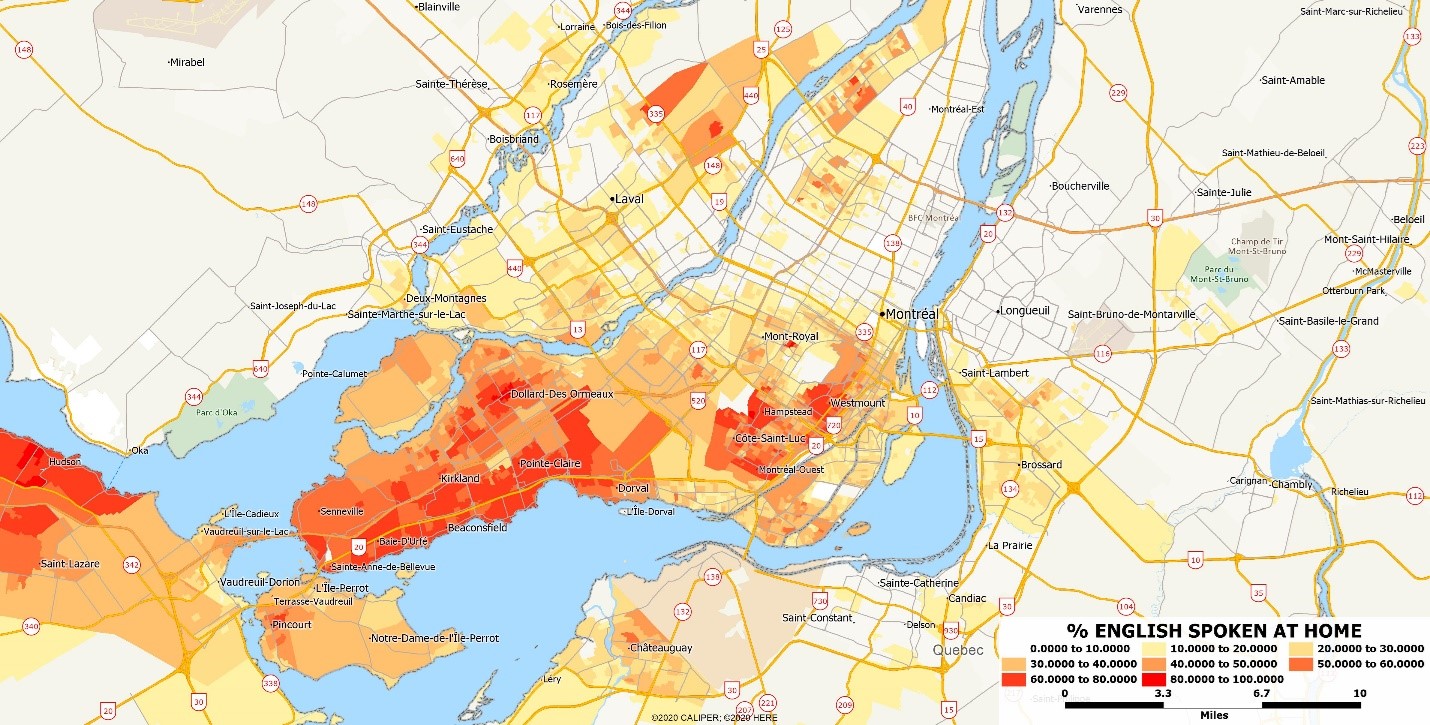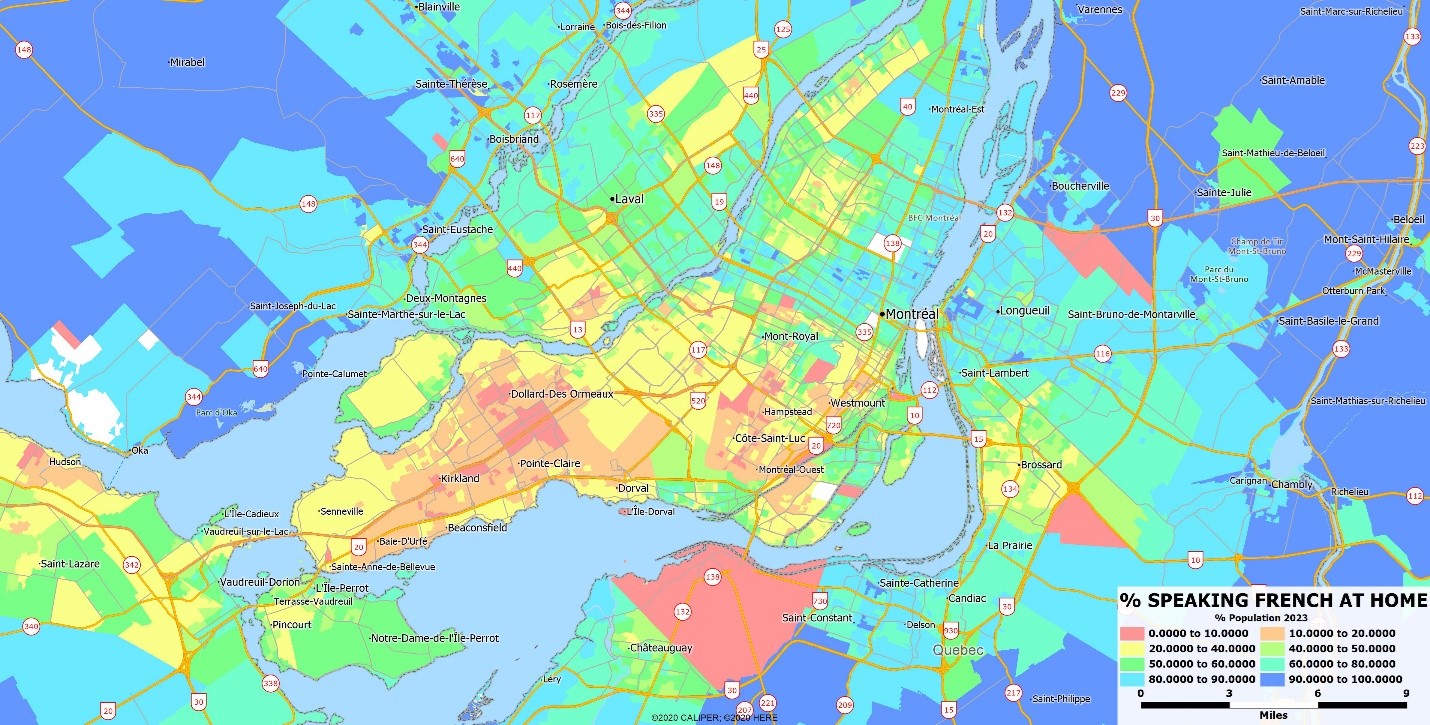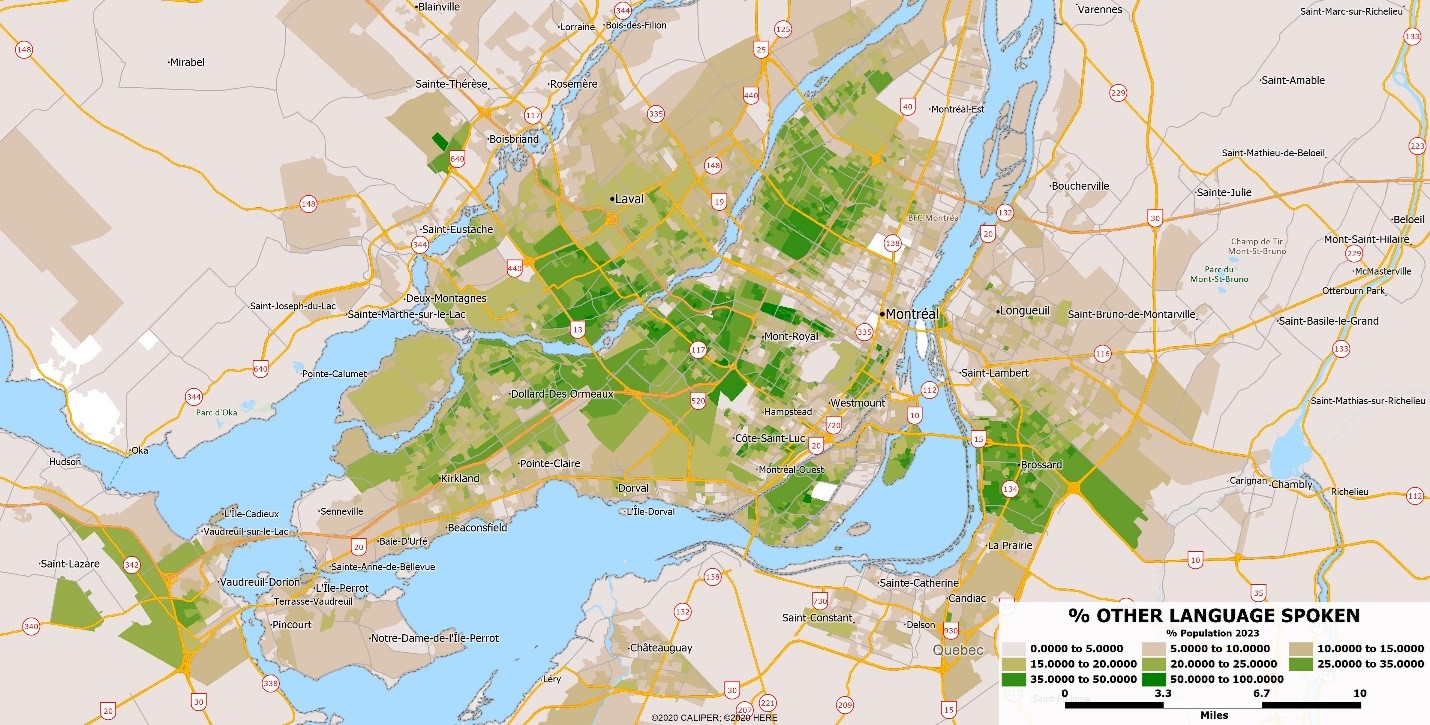Montreal is the second largest metropolitan area in Canada, with just over 4.3 million people. Most of us, especially here in the United States, tend to think of Montreal as being a French speaking city. To a large extent it is just that, but perhaps surprisingly, only 62% of its residents speak French alone at home.
Montreal is much more than a French speaking city, as three quarters of a million English speakers call it home, as do an almost equal number of residents who speak neither English nor French at home. Certainly, the majority of residents are bilingual, but in parts of the city the language you hear at the corner café will be neither French nor English.
The maps below paint a much more complex picture of the city than we often have in our minds – with several areas of the west side of the city being overwhelmingly English speaking – as the municipal names of Beaconsfield, Kirkland, Hampstead, and Westmount would suggest:

The high association with median income has long been a source of political tension in Quebec, where the echoes of the French military defeat in 1763 that left both Upper and Lower Canada under English rule:

The map of French speakers shows quite a different pattern than expected, with many areas of the city below 50%, most notably on the western half of the island:

In recent decades, the character of Montreal has changed from being a French city with an affluent English minority to being a cosmopolitan city where a multitude of languages can be heard in the streets. Those who speak neither French nor English include major portions along the north shore of the Island of Montreal, and significant concentrations on Laval and the south-east shore:

Contrast the cosmopolitan Montreal with the provincial capital of Quebec just a three hour drive down the river to the northeast. Quebec City, with a population of 840,000 is 92% French speaking at home, with fewer than 10,000 people who speak English only at home.
Nationwide, about one in five Canadians speak French only in the home, and the overwhelming majority of those are in Quebec and in adjacent areas of Ontario and New Brunswick. French speakers are much more likely to be fluent in English than the reverse, as just 10% of the English speaking population can carry on a conversation in French. Those who have brought other languages to the city choose French over English as the language to learn by a small minority, which likely ensures that despite high immigration over the past few decades, the city will still be French language dominant.
